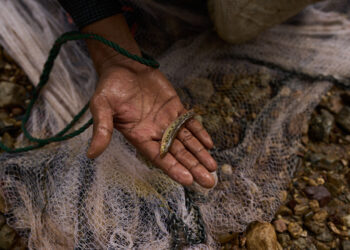A study of vaccination intentions of pregnant women and mothers of young children found that uncertainty about childhood vaccination was highest (at 48%) in pregnant women.
“Given the high decisional uncertainty during pregnancy about vaccinating children after birth, there may be value in intervening during pregnancy to proactively support families with childhood vaccination decisions,” the authors of the study wrote, led by Lavanya Vasudevan, MPH, PhD, with the Rollins School of Public Health at Emory University in Atlanta. The study findings were published in JAMA Network Open.
First-Time Pregnant Group Compared to Parent Group
Research on this topic is important, they note, because implementing such interventions would require substantial engagement of clinicians outside the pediatric setting. Vasudevan told Medscape Medical News those clinicians would include obstetricians, family physicians, nurse-midwives, and doulas.
“Key considerations include the providers’ training on childhood vaccinations, as well as the time, reimbursement, and resources available for implementation,” she said.
This study included survey responses from 174 pregnant women (64% were aged ≥ 30 years; 27% were Hispanic, 14.4% were non-Hispanic Black, and 52.9% were non-Hispanic White). The parent group included 1765 participants (78.1% were aged ≥ 30 years; 21.7% were Hispanic, 11.4% were non-Hispanic Black, and 56% were non-Hispanic White). About half in both groups had a bachelor’s degree or higher — 49.4% in the pregnant group and 45.1% in the parent group.
Responses Grouped into Six Categories
The women were asked about their intentions regarding all vaccines recommended for children from birth to age 18 months.
Researchers grouped responses into six categories: accept all vaccinations, delay some or all, delay some and refuse some, refuse some, refuse all, and undecided. The proportions intending to accept or accepting all recommended pediatric vaccines were similar among pregnant participants and parents. But other categories saw some wide gaps:
- The proportion intending to refuse or refusing some or all pediatric vaccines (without delays) was lowest among nulliparous pregnant women (4%) and highest among parents (33%).
- Uncertainty about childhood vaccination was highest among nulliparous pregnant participants (48%) and lowest among parents of young children (4%).
‘Window of Opportunity’
Medical educator Peter Chin-Hong, MD, a professor at the University of California San Francisco, who specializes in infectious diseases, told Medscape Medical News that “identifying high uncertainty about childhood vaccines in pregnancy opens up a window of opportunity.”
“It’s a time when people are generally more receptive to hearing messages about their own health and the health of their unborn child,” he said, “and infectious disease prevention is one of the many things that can improve the health of both.”
He said he agrees that interventions and coordination expanding to specialties outside of pediatrics can take substantial resources but some form of intervention “can start tomorrow” he said, such as mentioning the benefits and safety of future childhood vaccines in conversations with pregnant women. Sometimes that is thought to be the job of pediatricians and skipped in other specialties, he said.
Need ‘Couldn’t be Greater’
“The need couldn’t be greater,” he said. “There are so many reasons to focus on this population — not only for the decisions for when the child is 5 years old and getting their [measles, mumps and rubella] shot, but for now [with maternal vaccines that cross the placenta] — because I can’t really do much when a baby has some types of infections within the first 6 months.”
Pregnant people interact with the healthcare system at multiple points, he noted, so there are multiple times when an intervention could happen. “In my experience, a person who’s uncertain about vaccines doesn’t reverse that in one visit. It requires a series of visits, just like stopping smoking.”
Further Study May Answer Questions
The appetite for introducing robust support for pregnant women in making vaccine decisions, “particularly in this political climate,” will likely depend on cost-benefit analysis, Chin-Hong said. He said future work should decide who would do the interventions and how often, and how much intervention is needed to result in more vaccinations of children.
Additionally, the authors wrote “Future interventions should account for differences in uptake of seasonal (ie, COVID-19 and influenza) vs routinely recommended vaccines.”
The authors and Chin-Hong reported having no relevant financial relationships.
Marcia Frellick is a Chicago-based healthcare journalist and a regular contributor to Medscape.
Source link : https://www.medscape.com/viewarticle/could-intervention-pregnancy-boost-child-vaccine-uptake-2025a1000iru?src=rss
Author :
Publish date : 2025-07-16 11:21:00
Copyright for syndicated content belongs to the linked Source.








